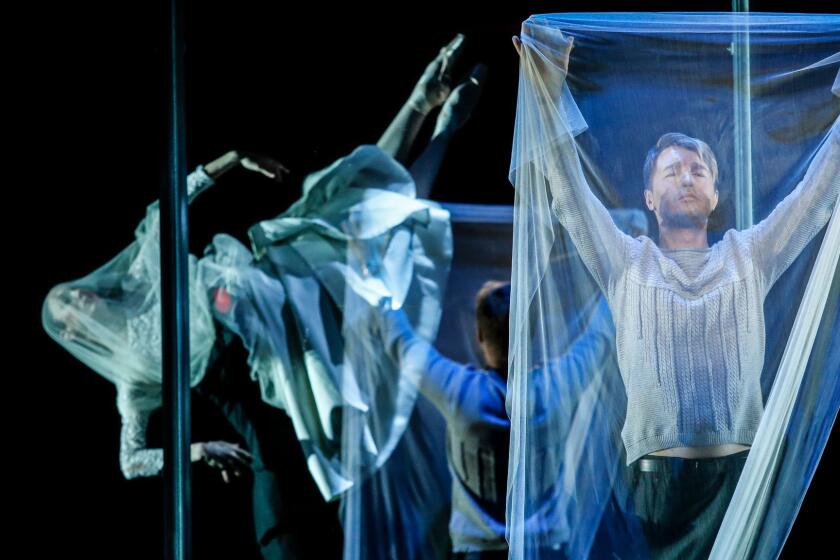10 novels making fresh fiction out of ancient myths
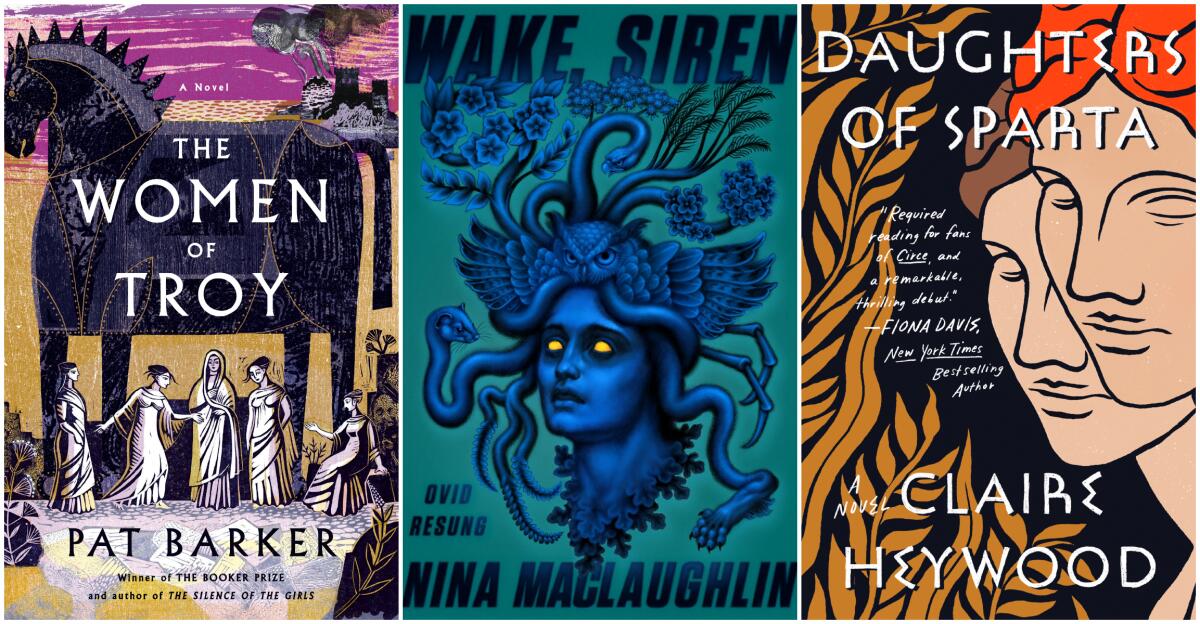
On the Shelf
Ten Novels of Myths Retold
If you buy books linked on our site, The Times may earn a commission from Bookshop.org, whose fees support independent bookstores.
Philandering spouses. Envious brothers. Vindictive sisters. Heroic battles. Bloodshed. Tales passed down in Greek and Roman myths, Yoruba religion or Santeria — among others — have provided plots for evolving forms ranging from Shakespeare’s plays to Marvel Comics franchises.
Anthony Doerr’s new book, “Cloud Cluckoo Land,” isn’t the first or last to make use of civilization’s first story engine. The past couple of years have seen a wealth of thoughtful novels that take the bones of these tales and make them flesh. Some of the most provocative have imagined voices for characters, mostly women, who never got to speak. Each of these 10 recent works add to the ancient chorus — often by plucking people out of the chorus to offer glorious solos of their own.
Revisions are not always redemptions. The only black-and-white message that ever seems to emerge from myths is “Never anger a god.” But in these marvelous retellings, we can hear the human stories over the din of the deities.
‘Cloud Cuckoo Land,’ Doerr’s followup to ‘All the Light We Cannot See,’ ambitiously maps a world connected by stories — if we know how to read them.
The Women of Troy
By Pat Barker
Barker originally retold “The Iliad” in “The Silence of the Girls,” the story of Briseis, the Trojan queen and enslaved trophy fought over by Achilles and Agamemnon. Here she continues Briseis’ journey in a sort of mirror “Odyssey.” Despite Troy’s fall, the war continues, divine punishment for the denial of burial rites to Priam. Hecuba, his widow, conspires with Briseis to take advantage of the restless, fractious Greeks.
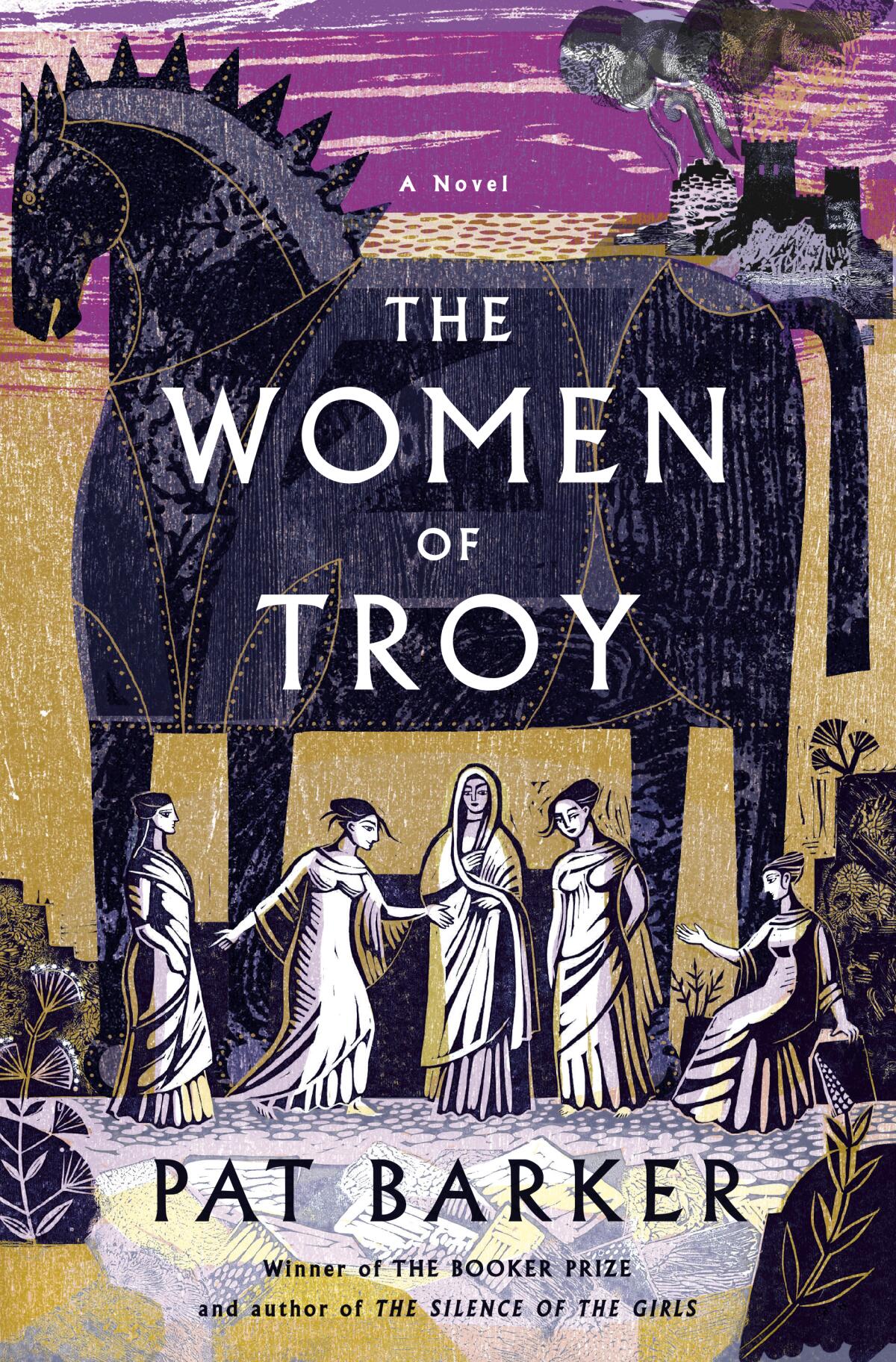
A Thousand Ships
By Natalie Haynes
Haynes, a British classicist, begins a story drawn from Virgil and Homer with the sharp-tongued Calliope, who is fed up with men demanding she sing yet another epic poem. Creusa recounts the final days of Troy as Aeneas, her husband, watches the city burn. And the Trojan women join the chorus to speak stories left ignored, unrecorded, by men.
Daughters of Sparta
By Claire Heywood
Helen and Clytemnestra are princesses of Sparta, both married off by their father as pawns in service of stronger alliances. And both are underestimated by cruel husbands, Menelaos and Agamemnon, with fatal consequences. Heywood allows these two women — often portrayed as villains — to make a case for their actions.
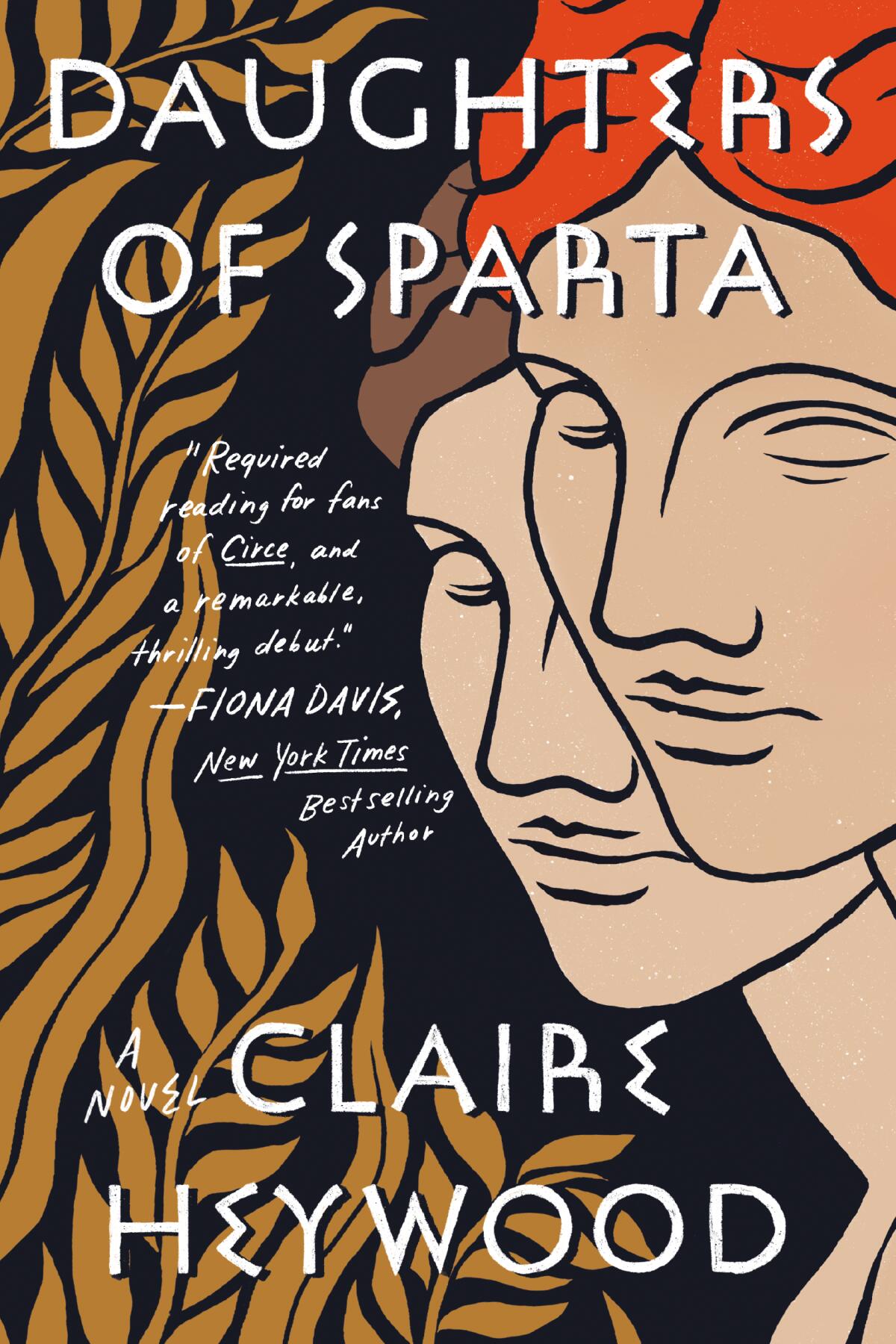
Country
By Michael Hughes
In another “Iliad” reinvention, the wrath of Achilles plays out against the backdrop of peace negotiations during the Troubles in Northern Ireland. Liam O’Brien, known as Achill, is the IRA’s crack sniper, feared and admired in his community. When the wife of one of his compatriots turns informer and runs off with a British man, wheels are set in motion for an ugly battle that will determine the course of peace.
Modern-day readers may believe that they’ll need body armor to meet the barrage of challenges awaiting them in “The Iliad.”
Shallow Waters
By Anita Kopacz
Yemaya is a water goddess, one of the Orisha, deities of the Yoruba. Kopacz imagines her as a girl in slavery-era America. As Yemaya moves between her mermaid self and her Earth-bound body, she grows into her healing powers. Kopacz has described her poetic work as a “personified tale of my own healing,” a means for exploring the deep wounds of the past — personal and collective.

Wake, Siren
By Nina MacLaughlin
Ovid’s “Metamorphoses” recount stories of deities and mortals turned into other beings. MacLaughlin reimagines these tales in a mixture of modern and ancient settings, focusing on those whose bodies were transformed as the result of gods’ fickle whims and murderous rages. In the process she enacts her own poetic metamorphosis, producing sparkling short stories in which the silenced are given new languages to speak.
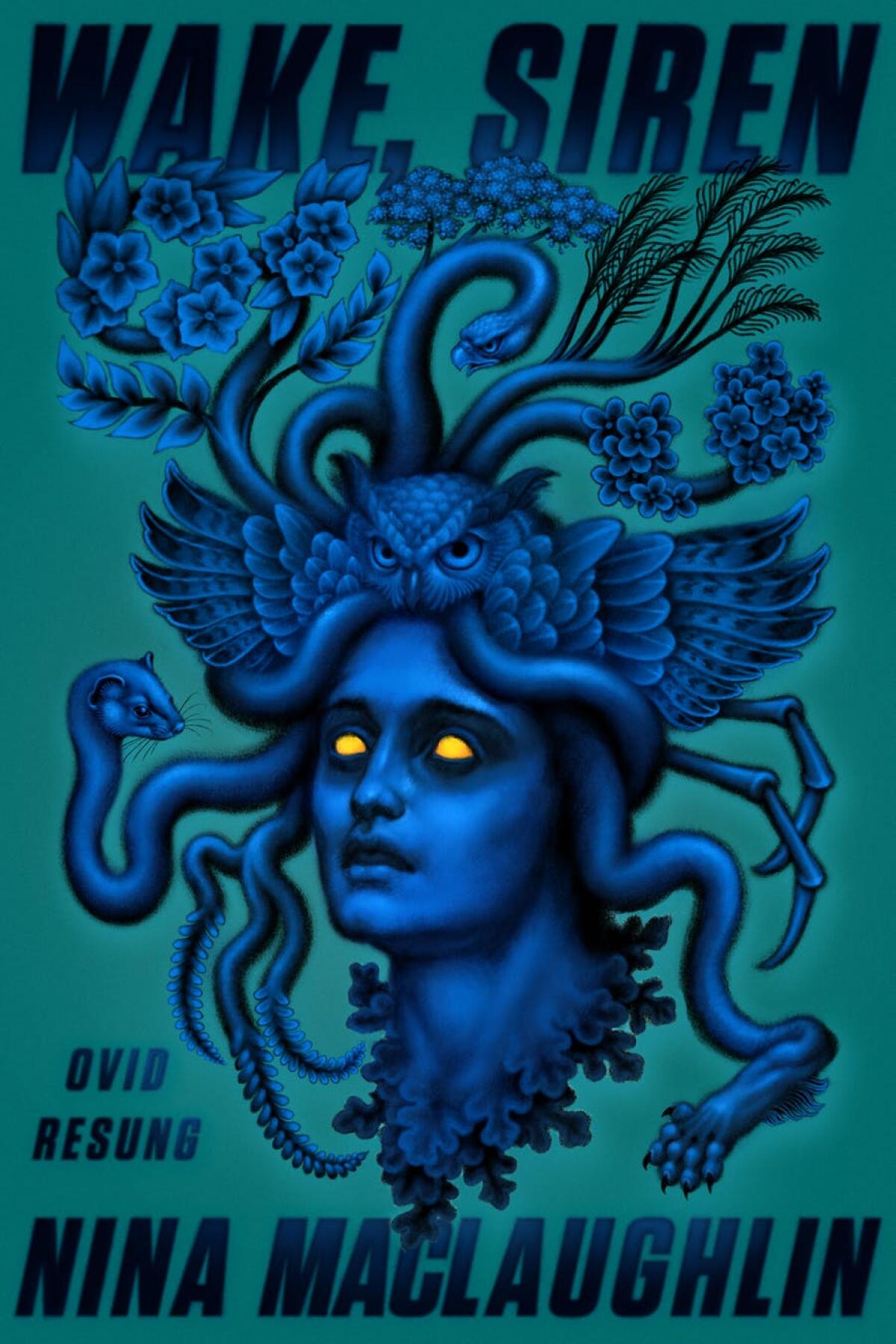
Circe
By Madeline Miller
In Miller’s accounting of Circe, one of the witches encountered by Odysseus on his long journey home, readers get to know her in her youth — child of the sun god, Helios. Circe discovers that she possesses enormous powers, but wielding them brings her into direct conflict with Zeus, who banishes her to the island where she’ll meet-cute with Odysseus.
Imagine that Achilles, that legendary warrior, was in love with his second-in-command, Patroclus.
Never Look Back
By Lilliam Rivera
Eury has moved to the Bronx from Puerto Rico in the wake of Hurricane Maria; she feels the presence of an evil spirit that has accompanied her. Pheus is a singer smitten by Eury; he sets out to fight Eury’s demons. Rivera has beautifully reimagined the myth of Orpheus and Eurydice for 2021 New York City in a compelling Afro-Latino magical realist YA story.
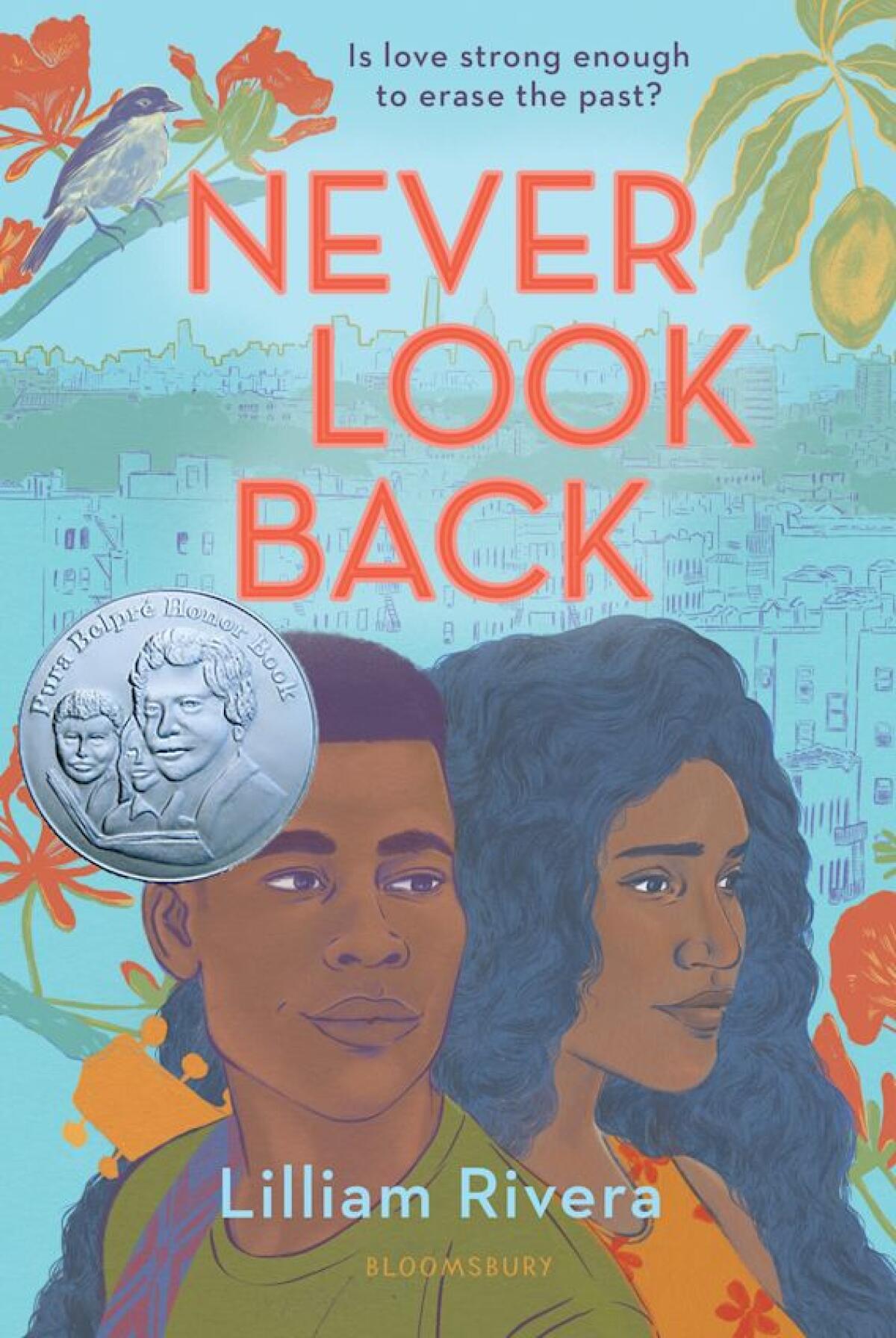
Ariadne
By Jennifer Saint
Ariadne was the half-sister of the Minotaur, the monster used by her father to exact his revenge on the Athenians. When she falls in love with the Greek Theseus, she realizes the only way to stop her father from killing him is to arm Theseus against the Minotaur. But her decision has repercussions far beyond what she could have foreseen.
Olympus, Texas
By Stacey Swann
The antics of the gods on Mount Olympus would rival the plot of the most salacious soap opera. Swann moves the action to East Texas and the back-stabbing members of the Briscoe family, combining “Dallas”-style narrative juice with literary panache and a classical pedigree.
More to Read
Sign up for our Book Club newsletter
Get the latest news, events and more from the Los Angeles Times Book Club, and help us get L.A. reading and talking.
You may occasionally receive promotional content from the Los Angeles Times.


